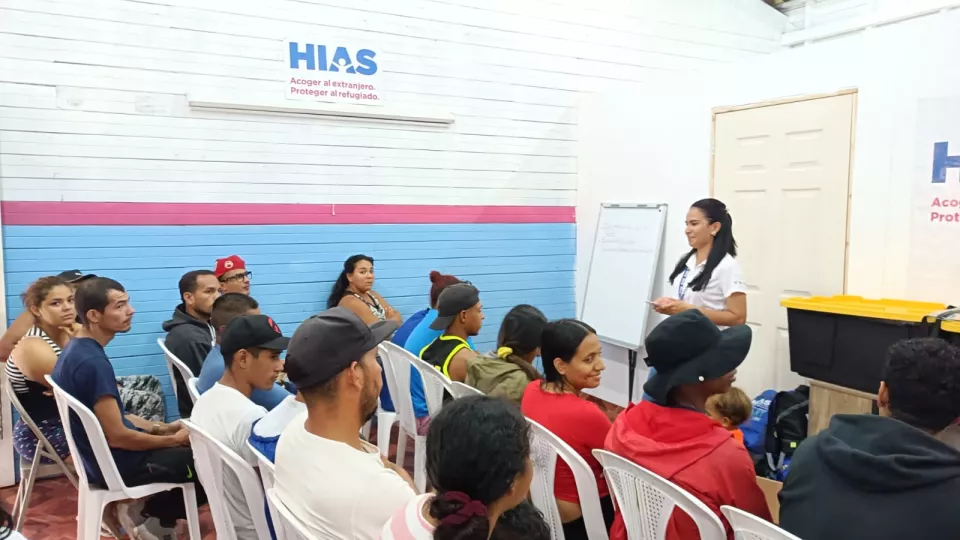
Upholding LGBTQIA+ Rights in Disaster Settings: A Call for Inclusive Humanitarian Action
In humanitarian and disaster response efforts, LGBTQIA+ individuals are among the most vulnerable yet least visible

In humanitarian and disaster response efforts, LGBTQIA+ individuals are among the most vulnerable yet least visible
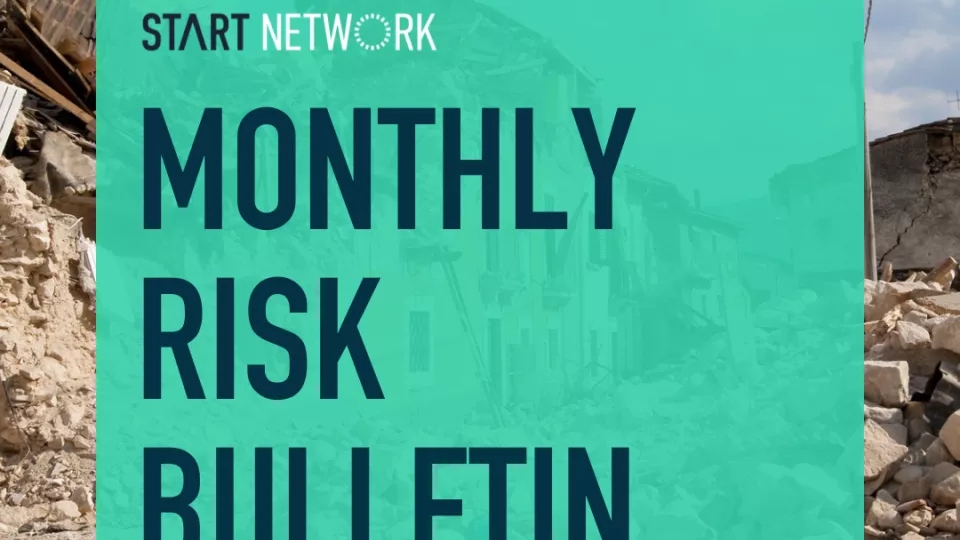
The Start Fund monthly risk briefing reports on new, emerging or deteriorating situations. It is collated by the Start Network Anticipation and Risk Financing team using information from academia and research institutes, government departments, ACAPS, global risk indexes, risk information provided by Start Members and their partners, and the media. April's Risk Brief includes entries on conflict in Mozambique, extreme heat in Southeast Asia, electoral tensions in Chad and Venezuela, and flooding in Afghanistan and Pakistan.
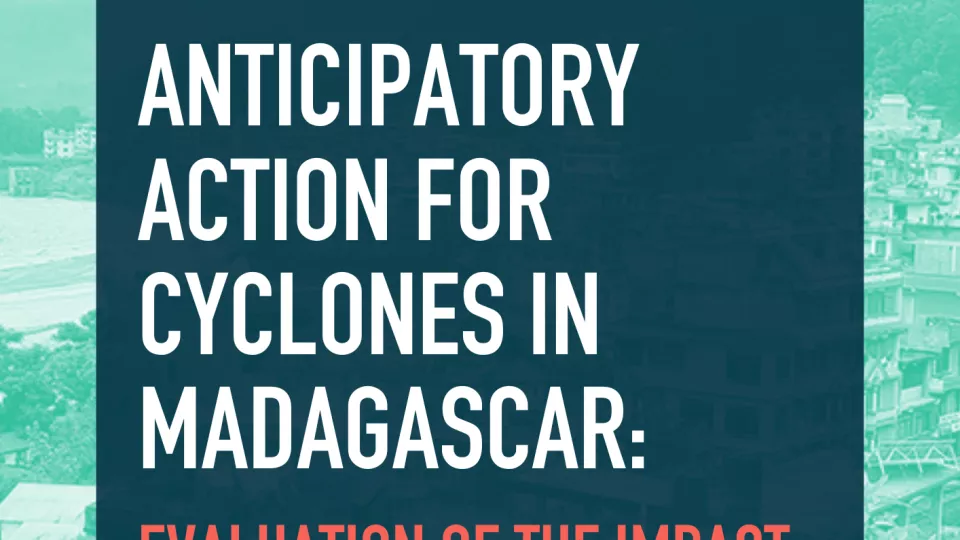
Cyclone Freddy, the longest-lasting and most powerful cyclone ever recorded, hit Madagascar on 21-22nd of February 2023, and reemerged on the 5th of March, becoming the third deadliest in the Southern Hemisphere.

The Start Fund Risk Brief reports on new, emerging or deteriorating humanitarian situations across the globe. March's Risk Brief includes entries on the risk of severe flooding across East Africa, dengue outbreaks in Latin America and the Caribbean, extreme heat in Sri Lanka and India, and food insecurity in Papua New Guinea and Timor Leste.
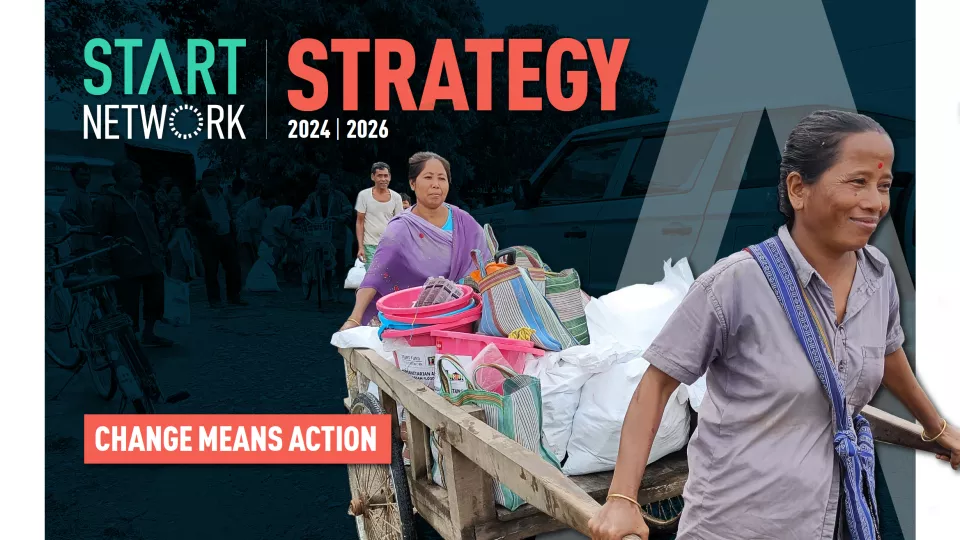
Change means action: Start Network's new 3-year strategy for 2024-2026 has just launched. It crystallises our value offer as a systems change organisation and sets out how we will address the challenges in the humanitarian sector.
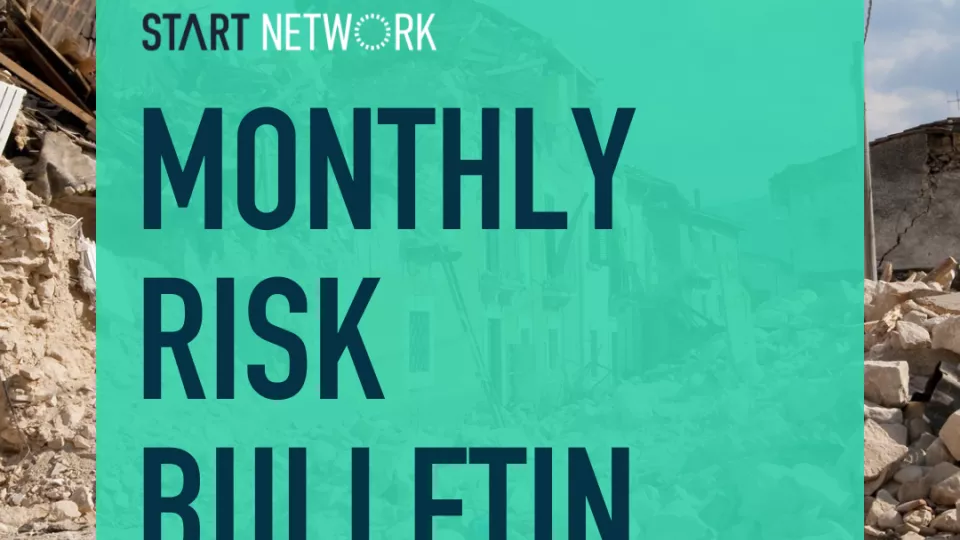
The Start Fund monthly risk briefing outlines new, emerging or deteriorating humanitarian risks relevant to the Start Fund collated by the Start Network Crisis Anticipation and Risk Financing team. The brief this month features risks linked with El Niño including flooding in Peru, wildfires in northern South America and drought in the Philippines, alongside disease outbreak risk in DR Congo and Congo, and complex humanitarian situation at the Colombia-Ecuador border.
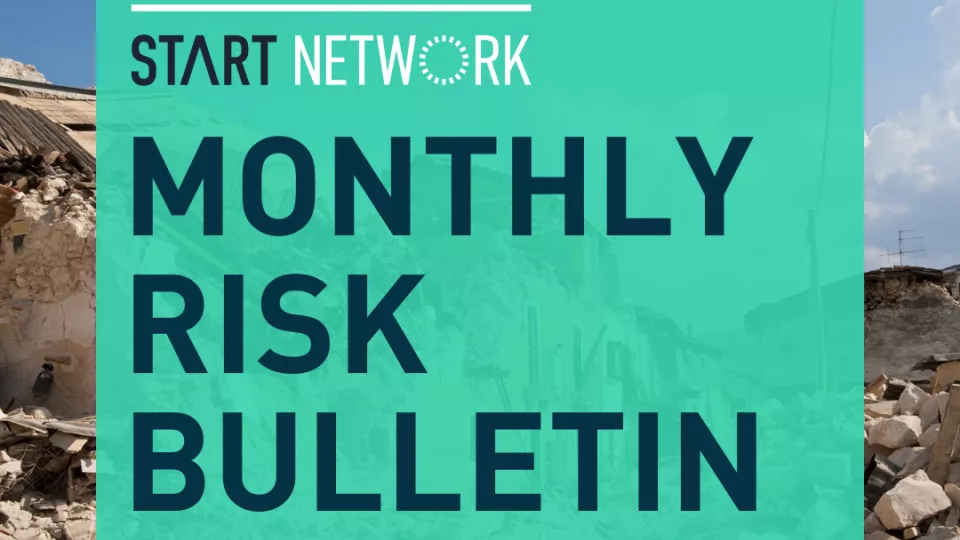
The monthly risk briefing reports on new, emerging or deteriorating situations; therefore, ongoing events that are considered to be unchanged are not featured and risks that are beyond the scope and scale of the Start Fund are also not featured. It is collated by the Start Network Anticipation and Risk Financing team using information from academia and research institutes, government departments, ACAPS, global risk indexes, risk information provided by Start Members and their partners, and the media. Key risks are shared and collated each month with FOREWARN input.
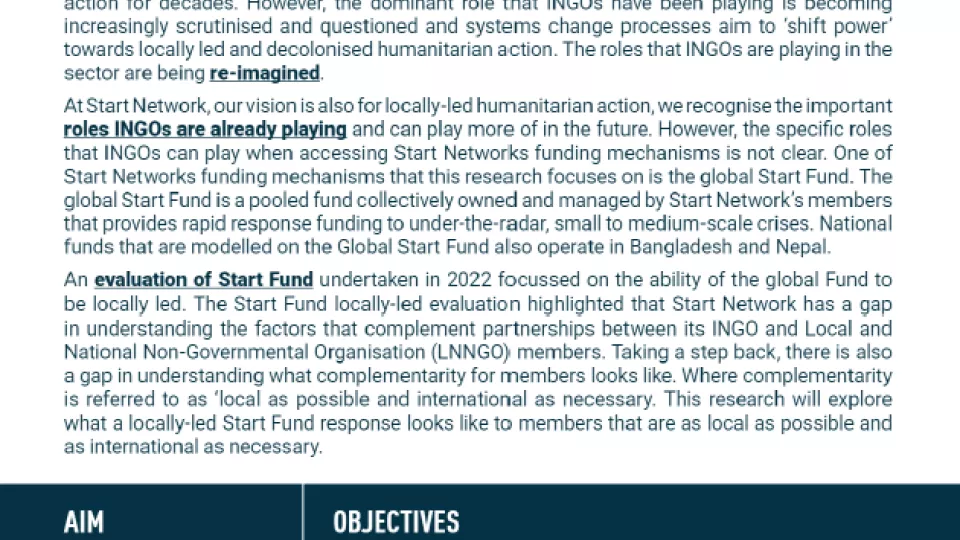
In 2022, an evaluation of the Start Fund explored ways the flagship programme could become more locally led.
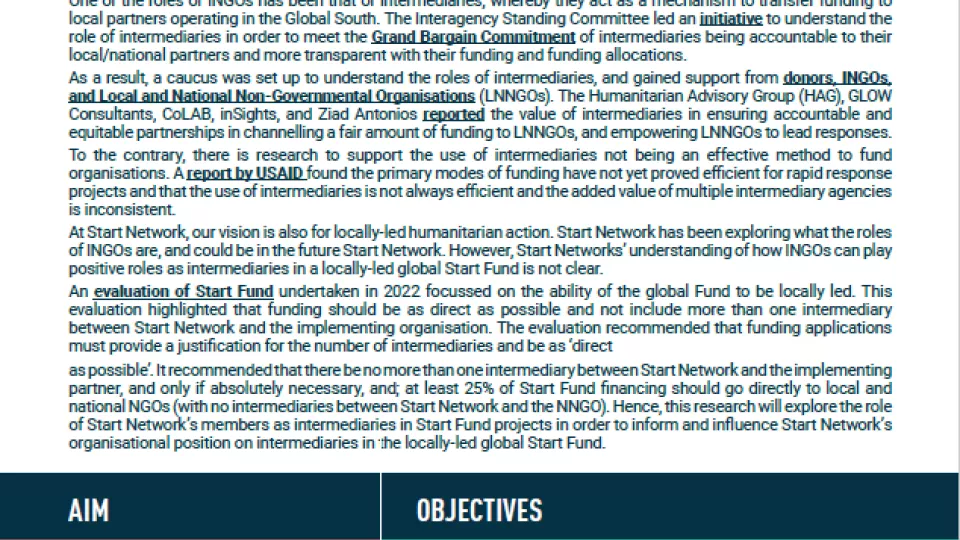
In 2022, an evaluation of the Start Fund explored ways the flagship programme could become more locally led. Two recommendations were made to Start Network, which required a deeper understanding of the role that members have as intermediaries and in complementary consortiums.
This pre-alert guidance note aims to support Start Network members to raise Start Fund anticipation alerts and act in advance of a crisis to prevent or reduce humanitarian impacts. This note includes advice on indicators and forecasts to predict cold waves, potential impacts, and anticipatory activities.